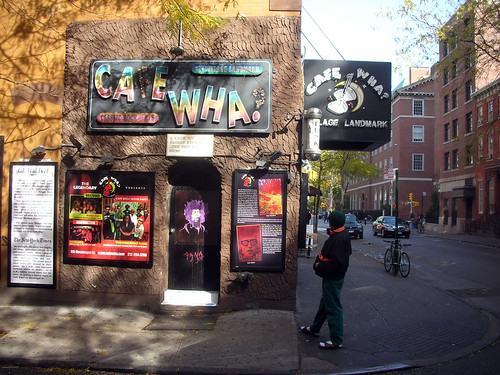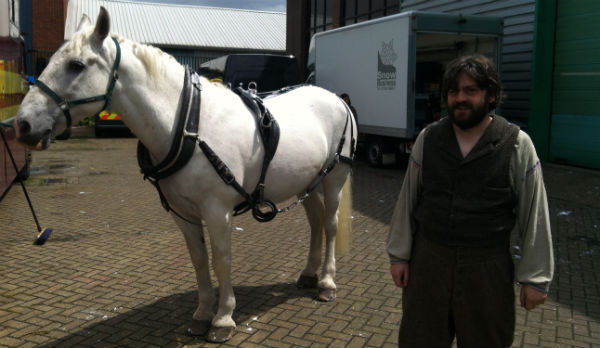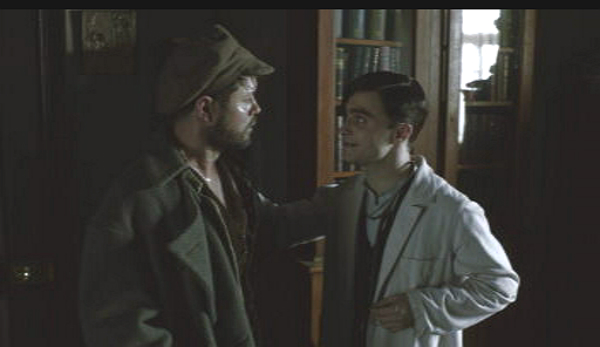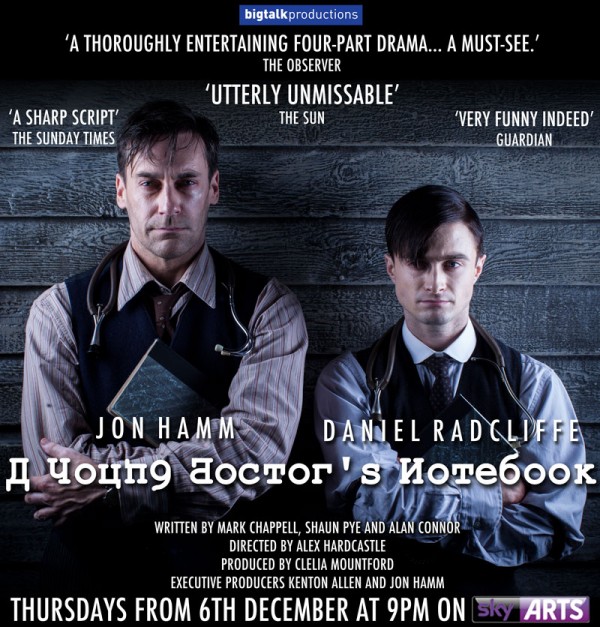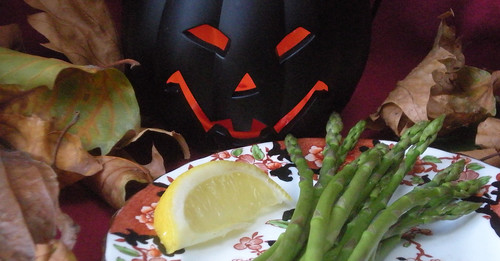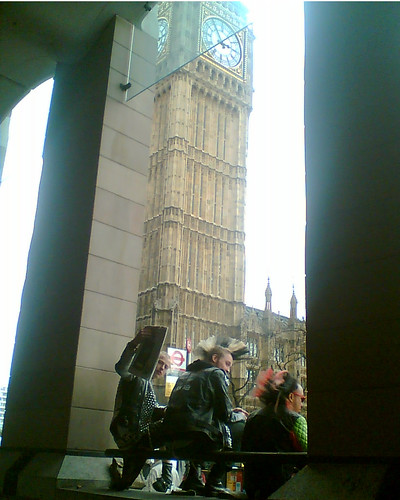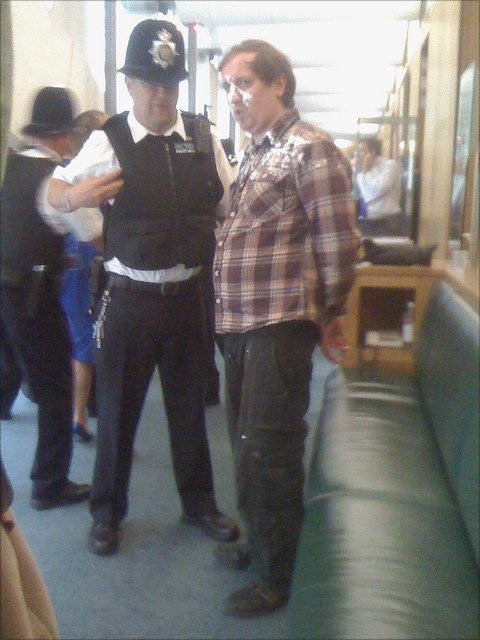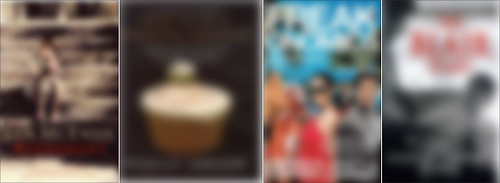Archive for the ‘journalism’ Category
The Beach Boys’ God Only Knows | BBC News
9 October, 2014A piece for the BBC about how Brian Wilson and Tony Asher composed God Only Knows.
These conversations were fractured. Wilson, who had been denied a childhood, would break off to show Asher his mechanical parrots or to watch episodes of Flipper, an “aquatic Lassie” series about a dolphin which invariably reduced him to tears.
In time, Wilson played Asher the pieces of music he had in mind for an album called Pet Sounds and Asher essayed some lyrics to fit the themes Wilson had in mind. When they got to God Only Knows, things didn’t start well. Wilson felt that “I may not always love you” was absolutely the wrong way to kick off a love song. Too negative, he insisted.
Indebted to Nick Kent’s The Dark Stuff, Kingsley Abbott’s Pet Sounds: The Greatest Album of the Twentieth Century, Timothy White’s The Nearest Faraway Place: Brian Wilson, the Beach Boys and the Southern Californian Experience and Brian Wilson’s Wouldn’t it be Nice: My Own Story (with Todd Gold (and Eugene E Landy)).
- Other 60s pop dissected: What a Wonderful World; A Whiter Shade of Pale; Flowers in the Rain
- Much more on Murry Wilson at WFMU
- Image: South Pointe, Miami Beach
How to Win at Quizzes, and Solve Cryptic Crosswords | The Guardian
13 September, 2014Two pieces in today’s Do Something supplement: How to win quizzes – from pub contests to Mastermind and How to solve a cryptic crossword.
Also, I will be signing Two Girls, One on Each Knee (7) at the reception for the keynote of the Chiswick Book Festival this evening.
- 6.00pm, Sat 13 Sept: Festival Drinks Reception
- St Michael & All Angels Parish Hall, Bath Road, London W4 1TT
- Tickets
Ary Barroso’s Aquarela do Brasil for BBC News
25 June, 2014A piece for the BBC News Magazine about Aquarela do Brasil:
One rainy night in 1939, he wrote the opening lines of Aquarela do Brasil (Watercolour of Brazil): “Brasil, meu Brasil brasileiro.” This translates as “Brazil, my Brazilian Brazil”. Never have four words been more Brazilian, before or since.
The censors had issues with some colloquialisms and a folksy reference to tambourines, but Barroso persuaded them that his “samba exaltacao” was modern and patriotic enough to meet their exacting requirements.
I thoroughly enjoyed Misha Glenny’s radio documentary The Making of Brazil, Bryan McCann’s book Hello, Hello Brazil: Popular Music in the Making of Modern Brazil and Scott L. Baugh’s reference work Latino American Cinema: An Encyclopedia of Movies, Stars, Concepts, and Trends. I am indebted; they are recommended.
My favourite versions:
And here’s that Disney, and Ze Carioca alive and well in 2014:
- See also: the BBC’s World Cup song, Stevie Wonder’s Another Star
- Photograph of a football match in Bekonscot
Stevie Wonder’s Another Star for BBC News
7 June, 2014A short-form piece for the Beeb on Stevie Wonder’s Another Star, the theme tune for the BBC’s World Cup coverage:
Another Star closes side four of Songs in the Key of Life – the very end of a four-album run in which Wonder relentlessly outdid himself. He had originally intended to follow his previous, Fulfillingness’s First Finale, with a sequel.
Fulfillingness’s Second Finale was to be a darker, socially conscious experience, but Wonder’s ambition overtook him, and he spent two years putting together a double album (with bonus single) instead.
No space this time for a collection of cover versions, so here they are.
With the Tokyo Philharmonic:
Salome De Bahia:
Caron Wheeler of Soul II Soul, Afrodiziak:
Kathy Sledge of Sister Sledge:
And, of course, with Nile Rodgers and Daft Punk:
Bob Dylan’s Like a Rolling Stone for BBC News
2 May, 2014A brief thought on the auctioning of the lyrics for Like a Rolling Stone for the BBC News Magazine.
The Times They Are a-Changin’ owes not a little to the Sermon on the Mount’s “Blessed are the meek, for they shall inherit the earth”. That earlier Dylan could be reassuring, even. You can imagine The Times They Are a-Changin’ coming from a gospel choir. Like a Rolling Stone, from 1965, is anarchy, and Dylan sounds like he’s enjoying it.
- See also: London Calling; A Whiter Shade of Pale; Killing in the Name
- Image of Cafe Wha?, Greenwich Village
Elvis Costello’s Shipbuilding for the BBC
7 November, 2013A short-form Smashed Hits piece for the BBC News Magazine about Shipbuilding, pegged to the closure of the Portsmouth shipyards.
It would have sounded very different if Costello had written the song for himself – or written the music. Shipbuilding was originally a piano piece written by Madness’s producer Clive Langer for a gentler performer, Robert Wyatt. Langer bumped into Costello at a party and suggested they go out to his car and listen to a cassette of the tune. Costello subsequently called from an Australian tour to say he had “the best lyric I’ve ever written”. Wyatt’s song was made – and in 1983 Costello recorded it himself.
No room, sadly, for Chet Baker playing at London supper-and-jazz club The Canteen, approached by Costello and offering to play on EC’s version for scale. “I think we probably doubled it,” remembered Costello.
Looking like a scraper site, DM? The Daily Mail flaunts its spam-a-like pages with content from… the BBC!
31 December, 2012
Jon Hamm and Daniel Radcliffe as Older Doctor and Young Doctor, both inspired by Mikhail Bulgakov’s experiences in a rural hospital
The Daily Mail’s TV & Showbiz pages include many non-stories which look uncomfortably like a dump of content the paper doesn’t own…
Mikhail Bulgakov is the Russian author of the original stories on which we based the mini-series A Young Doctor’s Notebook. I recently googled Bulgakov’s wife Yelena and came across a piece which begins:
This is the story of the Soviet authorities’ persecution of the Ukrainian writer Mikhail Bulgakov, as told through the diaries of Yelena, his third wife, and Bulgakov’s own letters.
The curious thing is that the link takes you to the Daily Mail, which isn’t the first site I associate with literary biography. And the page doesn’t read like a piece of journalism, exactly. Here’s how it looks:
It seems to be the programme note for a BBC Radio 4 drama from 2001. There’s no embedded audio, link or TX details; it’s not a review – just some contextless content. Which makes the Daily Mail look uncomfortably like a “scraper” site: those odd-looking, often illegal bits of the web which use other people’s property as padding around the real point of the pages, adverts:
Some scraper sites are created to make money by using advertising programs. In such cases, they are called Made For AdSense sites or MFAs. This derogatory term refers to websites that have no redeeming value except to lure visitors to the website for the sole purpose of clicking on advertisements.
When I accessed the Mail page which did well in search for Yelena Bulgakov, it had ads from Play, M&S, WeightWatchers, Ariel, Always and Google Ads. Perhaps it’s an anomaly, I thought. A one-off test page with some placeholder text which should have been deleted to avoid any risk of looking like the Mail was covertly bringing users to a page with content they don’t own to generate commercial revenue. I had a look around the TV & Showbiz section of the Mail and found a similar looking page:
And another one:
Again, lots of ads around both and in the second one, some information about other Radio 4 programmes. As it turned out, I found it difficult to think of a Radio 4 programme that hasn’t been surrounded by ads and made into a Daily Mail page.
Very odd. Someone had even added a picture to the Archers episode description, like with this documentary about Gandhi:
It’s a while since I worked at the BBC; perhaps these pages are part of a project where the Beeb has generously handed over its own content – or that of independent production companies – to help with the Daily Mail’s revenue streams, even while the Mail takes every opportunity to bash the Beeb. Perhaps there’s a reason none of these pages seems ever to have been linked to from the Mail’s front page. Perhaps it’s a good use of your licence fee. Who knows?
Other advertisers who find themselves next to BBC content include Marriott, Sky, Toyota, Dell, Lotto, Virgin, Nokia, Nationwide, Direct Line, Reiss, BA, Corsodyl, HSBC, JP Morgan, BT, Barclays and the Department for Business, Innovation and Skills. On all of them are Google Ads, the terms and conditions of which have a questionable relationship with the content.
A Young Doctor’s Notebook: How We Adapted Mikhail Bulgakov
5 December, 2012A piece for the Guardian about A Young Doctor’s Notebook: how we adapted the short stories for the screen and why Daniel Radcliffe and Jon Hamm are playing the same nameless doctor:
Our focus was the emotional core of the hospital tales: the hardening of the junior medic. In Bulgakov’s book, in interior monologue, the young doctor wonders how a more experienced practitioner might react, wishing he had the composure of his future self. But as the story Morphine warns us, that older self may not be wiser; he might, in fact, be a junkie. We wanted to incorporate that story: on screen, the older doctor (Hamm) is right there for the younger (Radcliffe) to talk to; but he turns out to be a damaged man: nostalgic, regretful, not above the occasional pratfall.

An extra treat in the past week has been seeing Hugh Aplin’s and Michael Glenny’s translations now sporting AS SEEN ON TV labels
- A Young Doctor’s Notebook, 9pm, Thursdays from 6 December; Sky Arts
- Daniel Radcliffe and Jon Hamm discuss the series
- Trailer
- NTV news package
Performance rights and John Cage’s 4’33” for Ariel
20 August, 2012I’ve written a piece for Ariel, the BBC’s in-house magazine, about the experience of making an audio slideshow containing a megamix of performances and recordings of John Cage’s 4.33.
- Me on other Christmas singles: Killing In The Name; Hallelujah; Fairytale Of New York
- Photo taken in Black Swan Arts gallery in Frome
Louis Armstrong’s What A Wonderful World for the BBC
10 December, 2011A piece about Louis Armstrong’s What A Wonderful World for the BBC.
It’s also irrepressibly public-spirited, people shaking hands on the street are, apparently, ‘saying I love you’ – illustrated in the Attenborough video, oddly, by two hippopotamuses fighting each other in the Okavango river.
And this is not the first time What A Wonderful World’s generosity of spirit has been juxtaposed with less-than-cheerful imagery.
No room, sadly, for Armstrong’s 1957 refusal to join a goodwill visit to the Soviet Union, saying: “The way they are treating my people in the South, the government can go to hell.â€
- Smashed Hits on perhaps-unlikely politics: Down Under; Two Little Boys
Bright blessed day photograph taken in Richmond Park; dark sacred night in Almondsbury – both in voguish Pano formatAccidentally permanently deleted and replaced with Mont St Michel
Party Conference Music: Primal Scream or Dandy Warhols?
5 October, 2011A rapid-response piece for the Guardian about Primal Scream’s outrage over being played at Conservative party conference:
“But whoever initially misidentified the music must have a tin ear. Bohemian Like You sounds like a Rolling Stones megamix with an emphasis on One Hit (To The Body) off Dirty Work, while Rocks sounds like a Stones megamix with an emphasis on Little T&A off Tattoo You.”
I am also compiling a Big List of all music played at all party conferences, politicians’ Desert Island Discs, etc. This will help.
- My look at David Cameron’s choice of Benny Hill’s Ernie in his Desert Island Discs
- Image of some Rocks taken in Staithes, Yorkshire
- The tin ear has since been assigned to Kerry McCarthy [PA]
Autumn Asparagus: Are ‘Reverse Season’ Spears the Same?
12 September, 2011English asparagus is back for a new autumn season; I test the spears and tips for the Guardian.
I have happy memories of every spear and tip I ate between St George’s Day and Midsummer’s Night, but as the ancient folk maxim has it: “Never eat asparagus while watching Strictly Come Dancing.” And contemplating eating asparagus in September, it struck me: the elation I feel when the vegetable appears is bound up with the way it heralds summer. Pondering the changing of the seasons at this time of year is likely to throw you into a panic over Christmas arrangements.
So I put Santa out of my mind and the spears onto a plate.
Twittiquette – or Twemes among Tweeple who Tweetup for Twirting and/or Twisticuffs
5 September, 2011I’ve written a piece for the BBC about words beginning with “tw-“, and why people enjoy coining them on Twitter.
“Flick through a dictionary and you’ll notice something about the English language’s ‘tw’ words. We have a few related to ‘two’: twin, twelfth, twilight and so on. And there’s a tiny minority of what you might call fairly sensible words: tweezers, twig and of course tweed.
“The rest, though, tend to be of a type that’s more playful or, depending on taste, more grating. ‘Tw-‘ words can be about inanity or ignorance: twit, twerp, twonk or twaddle. They can suggest lightness, smallness or delicacy: tweak, twiddle or twinkle. Or they can flag up that you’re being self-consciously old-fashioned: ’twas and ’twere; ‘twixt and ‘tween. All very twee.”
Sadly there was no room for the etymology of “twonk” – coined/popularised, according to the Telegraph, by John Sullivan to give Del Boy a non-sweary swear word; nor for gay slang “twink” (“with a slender build, little or no body hair, and no facial hair”).
Also, now that we know that “twilight” relates to “two”, why not let’s enjoy some twilights I’ve seen?
- More on exciting/annoying new words in my piece on Nudge, Blink, the Magnetic Middle &c.
- Props to Michael Rosen, Sadanand Dhume and languagehat.
The Guardian Crossword Blog
18 August, 2011I’ve started a blog about the fun of doing cryptic crosswords at the Guardian. The first post is now live:
“Others suggest [that] those of us hooked on crosswords might want to justify the time passed by pointing to the large vocabulary we’ve amassed – or, perhaps, to our pleonasm, to our Brobdingnagian prolixity. Well, boo-poo to that. (I admit I enjoyed learning the word ‘pleach’ from last Tuesday’s Times, but it may be many years until I get to use it in a sentence near a hedge.)”
It’ll be a mixture of the week’s best and funniest clues, tips for n00bs and features on awesome stuff like when crosswords feature in programmes like Rubicon and The Hour.
- Topics [ongoing update]: Bletchley Park; Is cheating cheating?; The Ten Commandments of cryptic ethics; Which newspaper is most crossword-friendly?; American vs British crosswords; Where do you solve?;Â Times Crossword Championship;Â Meet Anne R Bradford; the 1920s crossword moral panic; what I’ve learned from cryptics
- Meet the Setter [ditto]: Paul; Enigmatist; Anax; Tramp; Boatman
- For beginners [ditto]: Hidden answers; double definitions; soundalikes
- What does each letter mean? [ditto]: A
- Best clues [ditto]: Meta, Morse and Arsenal; Lord Sugar, Rupert Murdoch and the flesh lance; gamesmanship, ice cream and haiku; Elton John, hidden Damons and Moses; Smiley and Nixon; Ed Balls, Ed Miliband and David Cameron; Blur v Oasis; chess and the Tube; booze clues; e-ologisms; should themes be announced?; loos in clues; the ‘scrambled eggs’ chestnut; Occupy London Stock Exchange; new words in Chambers; Romeo and Juliet and Ant and Dec; booze and Dylan Thomas; ErdÅ‘s-Bacon numbers; Yule clues; cryptic Dickens
- Photo is of Guardian 25,402 by Puck. The only answer I’ve put in is wrong. “A day in dopey stupor, endlessly like t-h-i-s? (6,3)” should give SPACED OUT, not SPREAD OUT as I thought. This bodes ill.
- In 2009, I explained to foreigners why some British families do a jumbo crossword at Christmas.
The Clash’s London Calling for the BBC and NPR
28 July, 2011As the countdown to the 2012 Olympics kicks off with an unlikely theme song, I look London Calling and its zombies and heroin for the BBC.
“The Clash were supporters of pirate radio and considered launching their own station; this love song to the wireless signal recounts what, in punk terms, is up-to-the-minute and truthful news. But it isn’t saying ‘come and enjoy the canoe slalom’.”
Major hoorays to Marcus Gray’s Route 19 Revisited for the key fact that London Calling was originally inspired by Joe Strummer’s dislike of sports fans visiting London, as he explained to Kosmo Vinyl (Clash On Broadway box set booklet, 1991). Awkward [Update [1 Aug]: Praise be! Route 19 is imminently in paperback. There is nothing more interesting to say about 1979; I know – I tried! Buy it – it is The One.]
Sadly there was no space to mention Clash fan of Indian origin Harraj Mann, questioned in 2006 under the Terrorism Act after a taxi driver taking him to Heathrow airport became alarmed that he was listening to London Calling and called the police. The incident was seen as a massive overreaction, suggesting either that the song has lost its incendiary power, or that the authorities were being over-cautious – or both.
Also neglected was the way Strummer starts “doing” Tommy Steele’s Singing The Blues at the end (“I’ve never felt so much a-like…”), never better described than by Tom Ewing: “No consonant is safe with Steele around, words pool into one another in a shrugged gush of pre-meditated moodiness.”
Update [30 Jul]: Here is wireless nabob Scott Simon of NPR’s Weekend Edition Saturday yakking with me (see also NPR’s blog The Record):
- Image of comedy London punks in Westminster, 2006. It turned out, as they snarled at me, that I’d broken some implied contract where I’d pay to photograph them in a public place.
- Here’s an old BBC “London Calling” poster: “Throughout Europe, men and women are risking imprisonment, and even death, to hear the news from London, because they know it tells them the truth.”
- Some overlap with an earlier piece I wrote about (White Man) In Hammersmith Palais.
- People who like to know about mixing an instrument DI with a Neumann U87 on the cabinet will appreciate Mix’s Classic Tracks feature on the song; this BBC audio slideshow on the London Calling album is less abstruse.
Anders Breivik’s Plagiarised ‘Manifesto’
25 July, 2011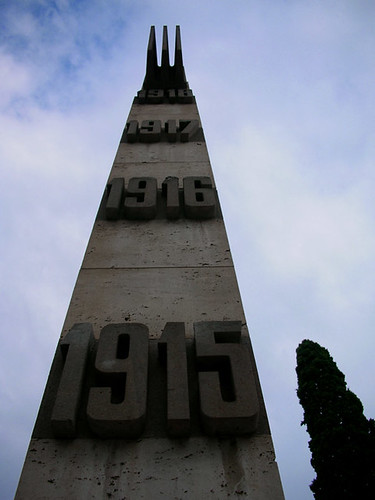 If Anders Breivik has just printed off the internet, maybe we shouldn’t make too much of his manifesto just yet.
If Anders Breivik has just printed off the internet, maybe we shouldn’t make too much of his manifesto just yet.
Among the blogs I read every day is My Right-Wing Dad, where appalled young American Democrats share emails they’ve received from relatives who have done the “FORWARD TO EVERYONE YOU KNOW!!!” thing. Among the icky racist cartoons and the odd genuinely funny bulletin-board-style gag are volumes of interminable implausible “research” about Bad People.
It’s the type of content that’s sometimes neither visible on the normal old web, nor hidden in the darknet: the stuff that pings in and out of inboxes, across forums and onto Yahoo! Groups. And if you’ve read that stuff too, Anders Behring Breivik’s “manifesto” must seem drearily familiar.
Why, you might otherwise wonder, would a Norwegian who claims an affinity with England write with the rhythms and cadences of amateur American net culture? And why is he so interested in the 1980s curriculum at Stanford University? The answer may be that Breivik didn’t so much “write” much of what he calls his “book” as copy, paste and twiddle. If you’re fascinated by plagiarism – I know I am – the twiddling will be familiar too – find/replacing terms throughout, the odd rejigging of sentences at the top of paragraphs to leave an apparently new document, still leaving inconsistency in tone, spelling and style.
Hulking chunks of the document come with attributions, and the latte wing of the UK twitterverse is currently sharing mentions of Jeremy Clarkson, Melanie Phillips and other apparent provocateurs; simultaneously scary and pathetic is the amount that should be attributed, but isn’t.
The lengthy “how the world is” section, for example, is a barely-finessed paste of a 2005 report called Political Correctness: A Short History of an Ideology by American think-tank the Free Congress Foundation; Life Site News hosts what appears to be the original. Breivik might have found it all together, or in the various forms it’s been scattered across the net.
Here’s an extract from Chapter 1, What is “Political Correctness”? by William S. Lind, apparently a military pundit and sometime senatorial aide:
And here’s Breivik, changing the location to Europe:
From Chapter 2, The Historical Roots of “Political Correctness†by Raymond V. Raehn, apparently a strategist:
And Breivik:
Finally for now, here’s the end of Chapter 3, Political Correctness in Higher Education by T. Kenneth Cribb, Jr, apparently a Reagan aide:
And, again, with a transatlantic transplant:
If this really took Brievik nine years, someone should have told him about CRTL+C; CRTL+V. You don’t need to type it all back in again. “Nine years” is a great line to get attention, but not one to be repeated without a bit of scepticism.
There’s plenty more, of course: Unabomber borrowings; reading lists cribbed from university courses, inevitable Wikipedia scrapes, and a critique of mass media seemingly lifted from an old leftish site after the removal of an approving reference to a John Pilger programme about Palestine. If you’ve ever said to yourself, “what a world we live in!”, you’ll probably shudder as you find something you agree with: even the bonkers end of the net is right at least twice a day.
It looks at the moment as if Breivik is positioning his murders as a kind of “marketing” for these pages of bilge, hoping they’ll be translated and read across the globe. So here’s the thing.
We should bear in mind that Brievik hasn’t, as some reports have it, proved himself “articulate”, or “well-read”, or some kind of intellectual mastermind. There’s little in his manifesto that couldn’t be produced after an all-nighter on the net hopped up on meds. There are, let’s say, plenty of self-published first-time authors whose work deserves more serious attention.
The manifesto might contain technical clues of use to the police; it  might contain political or philosophical clues as to why he did what he did. I’d be fascinated if it did, but I don’t know, and neither do you.
Perhaps Boris Johnson is right, and this is a story about “a narcissist and egomaniac who could not cope with being snubbed” by a girl “in favour of a man of Pakistani origin”; perhaps anti-conservative commentators are right that the amount of hate-text and fear-screeds already published are necessary or sufficient for acts of terrorism. It’s – obv – far too early to say.
But it’s not too early to say that Breivik is trying to build up his pontification in court today in the hope that international media will handle it like an evil genius’s plot-changing scene in a thriller rather than a mish-mash of other people’s wibble. That would seem to be missing the point and playing a loser’s game.
- Video from Newswipe about media treatment of mass killers – as relevant and must-watch now as it was then.
- Image of fascist sculpture in Cagliari, Sardinia.
- Related: a feature I wrote about online racist culture for the BBC, The poem that ends careers.
Murdoch ‘Pie’ Attack: I Was There
20 July, 2011Above is an image of “Jonnie Marbles” getting handcuffed outside the Wilson Room in Parliament. Below are images of the rest of us in the room being ejected. Here’s why everyone there found the stunt infuriating:
- The queues had started over seven hours before the committee began. It was like the Royal Wedding, but – genuinely – with normal people. Oldies, supermarket employees, families – normal. And while it was a festive mood, it was also tense: the official line as to how many people would get into the room kept changing, and some people were certainly facing a wasted day. Questions popped about. Was space being cleared for the Dowler family? Had the tiny Wilson Room been chosen so as not to look like a show trial? Was Jemima Khan trying to hop in? At one point, we were told that the Doorkeepers were considering letting us sit on each other’s laps if we so fancied. Westminster reporters were heckling sketchwriters about their slim chance of making it in. So when we later found out that the front of the queue had been a gang with a bag full of shaving foam, “comedy” wasn’t the first word that sprang to mind. Nor was “activism”. “Shabby oaf” and “stupid tit” were some of the descriptions I did hear.
- The dynamic in the room was entrancing – until it was cut off. Murdoch Jnr’s longer spiels were worthy of your favourite guest on Just A Minute – circumscribed vocabulary expressed with eerie diction, fending off attempts at interruption. “I’m happy to answer that,” indeed. As for Murdoch Snr, each time he rhythmically rapped his fin on the desk, the Wilson Room started by going instantly silent and then seemed to get more so. It wasn’t possible to tell whether this was deference on the part of the MPs, or anticipation of a juicy detail – but it was spell-binding. Knowing that the Murdochs, as non-subjects, were not compelled to attend meant that the ultimate authority never seemed to settle, though Headmaster Whittingdale had the lion’s share. Some of the questions felt a little random, but might have been leading somewhere that’ll become apparent in the months to come; we simply couldn’t tell. The experience was like those Richard Norton-Taylor inquest-recreation-play things, except real. Except – again – sometimes it didn’t seem real. There was Rupert Murdoch! In a room! Boom! Gone! For one afternoon, a functional room filled largely with shirted men was the greatest show on Earth. I swear I never once heard anyone whisper “You know what they should send in? Some clowns.”
- Which brings us to another shared source of exasperation. Moguls don’t tend to hang out in public space. This was like seeing Thor in a Job Centre. You don’t have to be fanciful or grandiose to feel proud that This Is How We (Eventually) Do Things – after all the tales of deceit and connivance, here was an open, public event, open to the public, where the public would show it was decent and fair. The public wasn’t supposed to be baffling, threatening or in any sense dickish. People were surprised that they were allowed to nip to the loo, drink fizzy water and chew gum. Hey – The Authorities don’t think we need to be treated like infants! Hmm.
Then, at just after ten to five, it was all over. An amazing, inspiring event ceased to exist as a piece of public property. I’d even missed the affray itself, because I was incredibly preoccupied with another bag-holder behind me, who had also stood up and seemed to be working his way round from the other side. Next we shuffled around as per the coppers’ yelled instructions, before eventually and sullenly trudging down the corridor to join Jemima Khan in the Boothroyd Room, cursing Jonnie Marbles. The committee was on the screens there, but what’s the point of watching something on TV if you have to remain decently dressed and you can’t even nip off to get a sandwich during another of Murdoch Jnr’s sixty-second dashes?
Finally, the speculation started again, including the inventive theory that News Corp had put the jackass up to it. “Because,” a punter noted, “that was the best thing to happen to Rupert Murdoch all day.”
Queen’s Bohemian Rhapsody for the BBC and NPR
15 June, 2011Radio 4 listeners have chosen Queen’s opera-headbanger as their favourite Desert Island piece of pop; I explain all in a feature for the BBC News Magazine, What is a Bohemian Rhapsody?:
“Freddie Mercury used a piano as the headboard of his bed. The double-jointed Mercury would awake with inspiration, reach up and back behind his head and play what he’d heard in his dreams. This was how Bohemian Rhapsody began.”
Update [22 Jun]: Here is Scott Simon of NPR’s Weekend Edition Saturday yakking with me about Bismillah and Scaramouche:
- Other florid lyrics I have enjoyed dissecting: Flowers In The Rain; A Whiter Shade Of Pale.
- More American public radio below; I discuss Daniel Powter’s Bad Day [article here] with John Schaefer on WNYC’s Soundcheck.
- Photo taken at the Alhambra in AndalucÃa‎ and included in tribute to Dr Matthew Beaumont‘s evocation of Moorish architecture. [More Beaumont in his book with Patrick Keiller, Chris Petit, Iain Sinclair et al, Restless Cities
.]
Eating Asparagus Every Day (2)
13 June, 2011Day 64 and the end of the English asparagus season approaches, bitterly early. I have been eating the recommendations of Guardian readers and I offer my findings in a new piece headlined Tears For Spears.
“[P]eople ask coyly about the, um, after-smell. I’ll spare excess detail [but] I welcome it as a reminder of a glorious meal. Everyone’s smells, incidentally, but not everyone can smell it. It’s better to avoid picturing the medical research that led to that finding.”
The experiment is enough to give Comment Is Free users a good name.
- If you too love either asparagus or repetition, you can watch the slideshow of the 2011 season above.
- Recipes are either provided or linked to under the Flickr images.
Google-Proofing the Pub Quiz
1 June, 2011I’ve written a feature for the BBC News Magazine about how pub quizzes can survive the smartphone era.
“Text-messaging Is Destroying the Pub Quiz As We Know It, noted the Super Furry Animals in 2001. Little did they know that the pub quiz of 2011 would start with the host insisting: ‘OK, iPhones away, please. Yes, very clever – and Androids. All phones away.’
“Cheating has always been possible in pub quizzes. But while once the dishonest quizzer had to pop out to phone a friend, or wait for a text message reply, phones with fast internet access have taken cheating possibilities to a new level.”
- Related: a piece by me for the BBC about Google getting us to teach it to see.
- Sadly, I was only able to talk to Stuart Jeffries, who sets the King William’s College Quiz, after publication. Perhaps next time.
- The last time I talked quizzes for the BBC was in this report by the excellent Chris Vallance for Broadcasting House on Radio 4.
- Photo taken at Bekenscot Model Village.
- One type of question which there wasn’t room for was the Blurred Cover. Below are four best-sellers. But what are their titles and authors?




